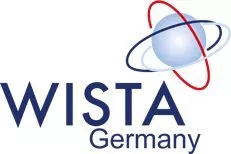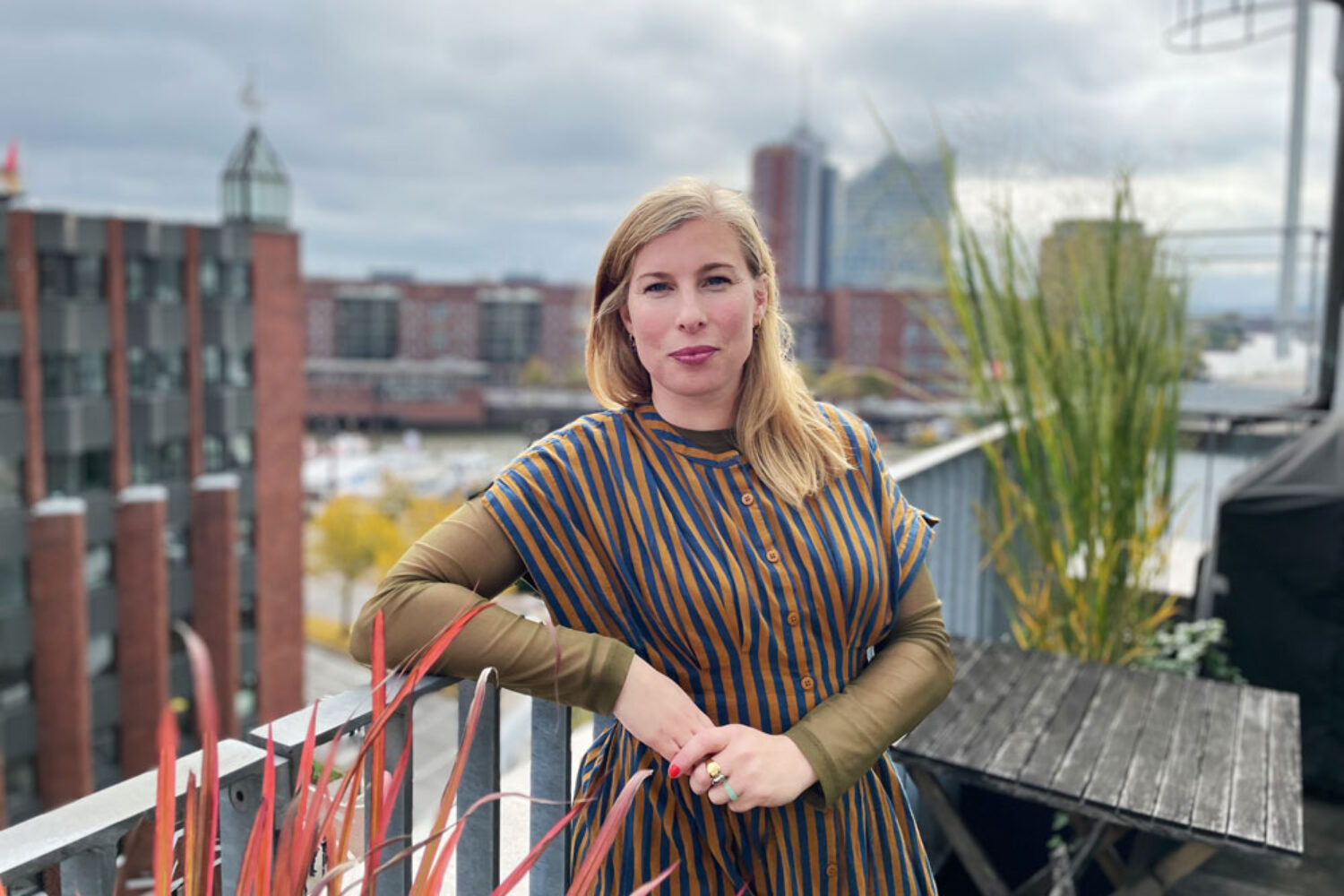Growing up in rural Schleswig-Holstein in Northern Germany, Almuth Teegen moved to Hamburg, where she trained as a shipping agent. Upon completing her studies, she began working for the maritime insurer Skuld.
How did you find your way into the maritime industry?
Almuth Teegen: I grew up in the beautiful Holstein region – surrounded by the sea in Nordic serenity. But Hamburg offered me many more opportunities to satisfy my curiosity. So, around 19 years ago, I decided to operate and charter ships. My career began with a Hamburg chartering broker and ship manager. My boss rode a Harley, and my colleague’s brother was a actor in a Klaus Lemke movie – that was an entertaining start.
I found the importance of the maritime industry for globalization fascinating right from the start. Shortly afterwards, I witnessed how the 2008 financial crisis shook the industry and the globalized world had to find new ways. I still remember well a “Hire Statement” with a daily rate of over $100,000 in the bulk segment – a value that was drastically reduced in a very short time.
With my practical experience, I went to Bremen to study International Studies of Shipping and Chartering (ISSC) with a focus on maritime law. Even during my studies, I never missed an opportunity to attend specialist seminars, conferences and industry events. I became passionate about a challenging niche: claims and insurance.
Your job in a nutshell – what do you do and where?
Teegen: I work as a Senior Claims Executive at Skuld, a Norwegian maritime insurer, and I found that my pragmatic and commercially minded approach was an ideal fit for this maritime business.
The world of marine insurance is complex – every claim tells its own story, some small, some big. Some are straightforward, others require a great deal of expertise and sensitivity. I have experienced situations that initially seemed confusing, but with a clear line and team spirit led to a good result. For me, marine insurance is not only a strategically important and economically relevant field, but also a dynamic working environment that is constantly looking for solutions.
What does a typical working day look like?
Teegen: We never know how the day will begin – but it always ends once the work is done. When? When the time has come and all the challenges have been overcome. Coordination, cooperation, authenticity, responsibility, and above all, flexibility shape our daily routine.
I work with a broad network of service providers: lawyers, experts, comprehensive insurers, brokers, salvagers, banks and engineers. Many threads come together here – sometimes this results in a compact solution, sometimes many small ones.
My team and I advise our club members and policyholders on all liability and contractual issues – mostly arising from charter agreements or bill of lading clauses. Occasionally we also carry out on-board visits, which I consider essential for efficient and sensitive handling. A large part of our day-to-day work also involves illness or accident situations involving crew members on board.
What do you love most about your job?
Teegen: The opportunity to act independently and at the same time work as part of a team. Developing solutions together with everyone involved, communicating complex issues and representing the position of our members is what makes every case unique. The job offers deep insights into local challenges, conflicts of interest and different jurisdictions.
What advice would you give to young people who want to pursue a career in the maritime industry?
Teegen: Do it. The industry works quickly and is solution-oriented – not least due to international cooperation. This makes for a lively working day.
The human element should not be underestimated. Even if artificial intelligence simplifies many things, personal interaction remains crucial. As a mentor, I have learned how helpful it is to approach new topics step by step: look, think, ask. And: an appreciative working environment doesn’t happen by itself – everyone can contribute to it. My mantra: work matters. Family matters. Professional development counts.
My sons, for example, are very enthusiastic about the missions of the sea rescuers, of which they have been supporting members since they were born. This connection reminds me again and again how important responsibility, precision and humanity are in our industry.
Why did you join WISTA and what does membership mean to you?
Teegen: I have been a member of WISTA for three years. Our regular meetings are very valuable because they offer an open feedback culture. The exchange with like-minded people about challenges and leadership issues has had a lasting impact on my view of many topics. These encounters are always inspiring.
The visit to EWMD – a cross-industry women’s network – was also motivating. It was enriching to meet women from very different professional fields. Without being a sailor myself, that’s probably what it feels like to be “on a good course”.
At almost 40 years old and with 20 years of professional experience, I listen differently today – more open and curious. Because I am no longer just part of the world of work, I am actively involved in shaping it. The impulses from WISTA and EWMD have broadened my professional perspective and shown how well we network and will hopefully continue to grow. I am always impressed by the exchange within WISTA – not least because of the wide range of topics covered by our members.
Which topics or trends are you currently most interested in?
Teegen: I read maritime briefings every day to stay informed. In our business area, we often have to react to geopolitical developments and make recommendations for our members.
For example, reports from the USA recently caused a stir, according to which ships built in China are to pay additional fees for port calls. Although exceptions and specifications have since been introduced, the situation remains complex. Cosco, for example, is currently facing considerable additional costs due to US port fees in the billions – costs that are likely to be partially passed on to contractual partners.
Conflicts in the Middle East, new tariffs and route shifts – such as the Red Sea circumnavigation – are also keeping us busy. The same applies to developments relating to alternative fuels and their impact on our members’ operations. Establishing global standards and reliable trading models is becoming increasingly important. This also affects insurers, who will be more involved in discussions about risk assessment and adapted policies in the future.
Last but not least, crew members are directly exposed to these influences: delayed port entries, longer deployment times, cyber attacks or war risk transits make the workplace at sea more demanding than ever. This makes a close, continuous exchange between shore and ship all the more important.
Interview: Anna Wroblewski

HANSA and WISTA empower women in the maritime industry
As part of an exclusive partnership with the German Women’s International Shipping & Trading Association, HANSA regularly portrays a member of WISTA Germany e.V.













